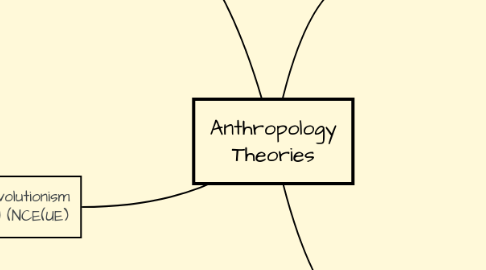Anthropology Theories
by Antonio Felice Munro


1. Nineteenth-Century Evolutionism (Unilinear Evolutionism) (NCE(UE)
1.1. Societies grow according to a single order, conforming to a universal cultural structure.
1.2. Societies can be classified as 'Savage', 'Barbarian' or 'Civilized'.
1.3. Theorists placed Western Society at the highest rung of civilization, being the most advanced culture.
1.4. Formed on the basis of two speculations.
1.4.1. Western civilizations are superior to others.
1.4.2. "Psychic Unity" = The minds of humans around the world share similar facets.
1.5. Gave anthropology the first system for understanding and categorizing human society.
1.6. Data by original theorists was second hand and the statisticians rarely visited the societies they were studying. They had ethnocentric views and were attacked heavily for the simplicity of NCE(UE)
2. Materialism
2.1. Theory that matter is the fundamental substance.
2.1.1. All events (including conscious) are the result of material interaction.
2.2. All philosophies can be described as either Materialistic (the physical takes precedence over the ideal) or Idealistic (the ideal takes precedence over the physical).
2.3. The body of philosophies which attempt to understand the world based on its physical properties.
3. Functionalism
3.1. Mental states can be simulated in even dissimilar systems which execute pertinent operations.
3.1.1. For reference, mental states are; beliefs, desires, knowledge, thoughts, mental images, perceptions, sensations, emotions and moods.
3.2. Brains are calculative devices which use sensory input to discern appropriate behavioral output.
3.3. Criticized for essentially stating the mind performs syntactic functions based on algorithms, and is as such incapable of realizing the meaning or denotation of the data it processes.
3.4. An attempt to comprehend the essence of mental states.
3.5. According to functionalism these states are categorized by their application, rather than structure.
3.6. Main founder commonly thought to be William James.
4. Structuralism
4.1. The belief that structure is more major than function, that elements of culture must be understood as nodes in the whole of culture as a single structure, the opposite of functionalism.
4.1.1. Finds meaning in association.

